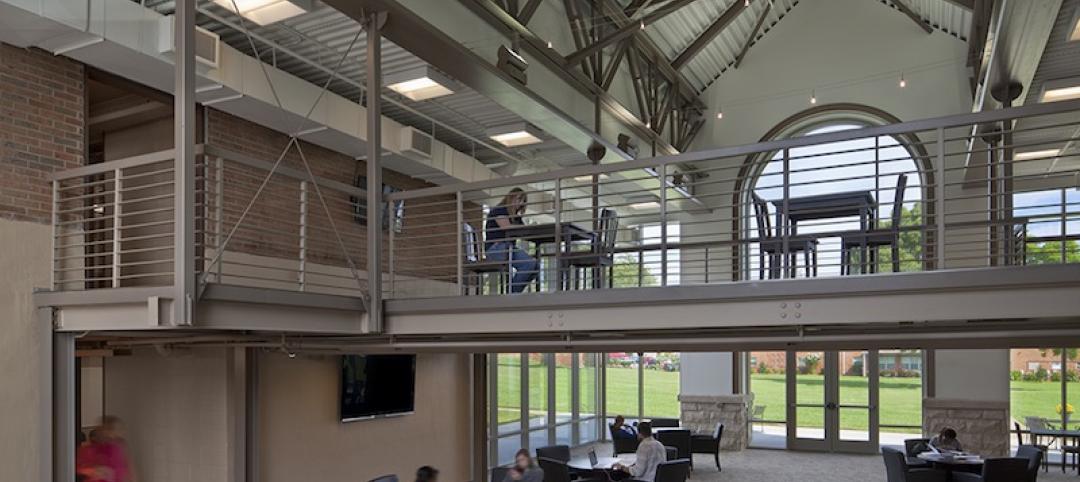Washington, D.C. - March 24, 2010 - Following a drop of nearly three points, the Architecture Billings Index (ABI) nudged up almost two points in February. As a leading economic indicator of construction activity, the ABI reflects the approximate nine to twelve month lag time between architecture billings and construction spending. The American Institute of Architects (AIA) reported the February ABI rating was 44.8, up from a reading of 42.5 in January. This score indicates a continued decline in demand for design services (any score above 50 indicates an increase in billings). The new projects inquiry score was 52.0.
"We continue to hear that funding dedicated for construction projects in the stimulus package has not yet been awarded, resulting in a bottleneck of potential projects that could help jumpstart the economy," said AIA Chief Economist Kermit Baker, PhD, Hon. AIA. "That, coupled with a persistently rigid credit market for private sector projects, is a key reason why the design and construction industry continue to suffer at near historic levels in terms of job losses."
Key February ABI highlights:
Regional averages: Midwest (49.4), Northeast (44.1), West (43.6), South (40.7)
Sector index breakdown: multi-family residential (47.3), institutional (44.2), mixed practice (43.3), commercial / industrial (43.2)
Project inquiries index: 52.0
About the AIA Architecture Billings Index
The Architecture Billings Index is derived from a monthly "Work-on-the-Boards" survey and produced by the AIA Economics & Market Research Group. Based on a comparison of data compiled since the survey's inception in 1995 with figures from the Department of Commerce on Construction Put in Place, the findings amount to a leading economic indicator that provides an approximately nine to twelve month glimpse into the future of nonresidential construction activity. The diffusion indexes contained in the full report are derived from a monthly survey sent to a panel of AIA member-owned firms. Participants are asked whether their billings increased, decreased, or stayed the same in the month that just ended. According to the proportion of respondents choosing each option, a score is generated, which represents an index value for each month. The regional and sector data is formulated using a three-month moving average.
About The American Institute of Architects
For over 150 years, members of the American Institute of Architects have worked with each other and their communities to create more valuable, healthy, secure, and sustainable buildings and cityscapes. By using sustainable design practices, materials, and techniques, AIA architects are uniquely poised to provide the leadership and guidance needed to provide solutions to address climate change. AIA architects walk the walk on sustainable design. Visit www.aia.org
Related Stories
| Dec 16, 2013
Construction materials prices remain stable in November
Overall, construction materials prices fell 0.5 percent in November and are up only 1.1 percent year over year, according to the Department of Labor’s Dec. 13 Producer Price Index.
| Dec 16, 2013
Helene Combs Dreiling, FAIA, inaugurated 2014 AIA President
Helene Combs Dreiling, FAIA, executive director of the Virginia Center for Architecture, was inaugurated as the 90th president of the American Institute of Architects (AIA) during ceremonies held on December 12th at the Andrew W. Mellon Auditorium. She succeeds Mickey Jacob, FAIA, in representing nearly 83,000 AIA members.
| Dec 13, 2013
GRW acquires West Virginia design firm Chapman Technical Group
GRW is expanding its capabilities through the recent acquisition of Chapman Technical Group, a 36-person West Virginia-based firm.
| Dec 13, 2013
AIA, MIT issue joint report on impact of design on public health
The research looks at the health of eight U.S. cities and lays out a path for translating the research into meaningful findings for policy makers and urban planners.
| Dec 11, 2013
Wyndham unveils hotel prototype for its Hawthorn Suites chain
The extended-stay hotel prototype reduces development costs by 46% for franchisees and enhances the overall guest experience.
| Dec 10, 2013
16 great solutions for architects, engineers, and contractors
From a crowd-funded smart shovel to a why-didn’t-someone-do-this-sooner scheme for managing traffic in public restrooms, these ideas are noteworthy for creative problem-solving. Here are some of the most intriguing innovations the BD+C community has brought to our attention this year.
| Dec 9, 2013
Tips for designing higher education's newest building type: the learning commons
In this era of scaled-down budgets, maximized efficiencies, new learning methods and social media’s domination of face time, college and university campuses are gravitating toward a new space type: the learning commons.
| Dec 9, 2013
Does technology help or hinder innovation?
Whether digital technology will help or hinder workplace insights remains a topic of ongoing debate. FastCo.Design features insights from business scholars on both sides of the issue.
| Dec 6, 2013
French concert hall includes integrated musical elements [VIDEO]
La Métaphone, a concert hall in Ognies, France, is a 1,980-sm facility with the unique characteristic of being a structural musical instrument. The solar-powered building incorporates musical elements in its walls, which can be played by musicians inside or outside the facility.
| Dec 6, 2013
Goettsch Partners selected 2013 AIA Chicago Firm of the Year
Architecture firm Goettsch Partners (GP) has been named the 2013 Firm of the Year, as conferred by the Chicago chapter of the American Institute of Architects (AIA Chicago). The award is the highest honor a firm can receive from the chapter.















